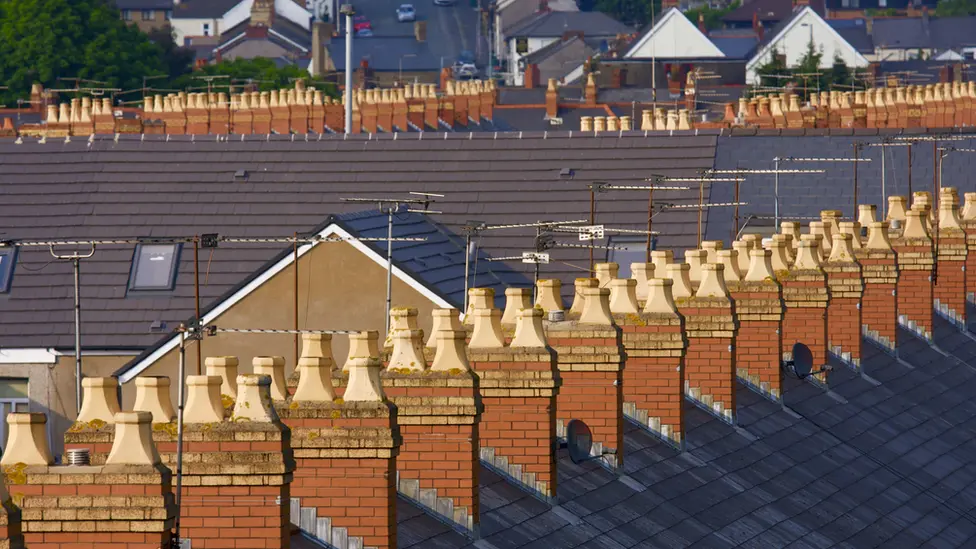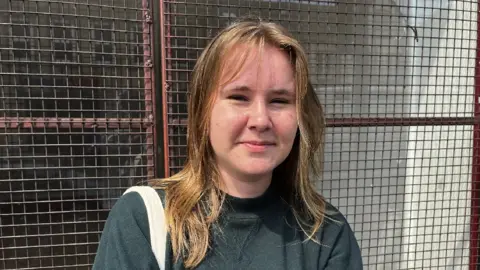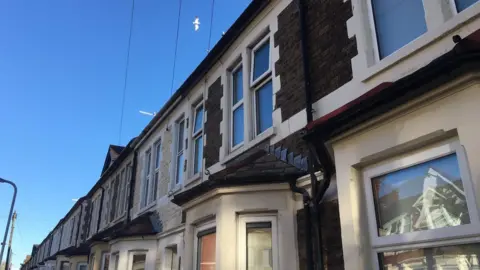Rent: Wales to consult on controls for private tenants
 Getty Images
Getty ImagesRestrictions on the rent private landlords can charge tenants are being considered by the Welsh government.
There are no firm plans but officials want to hear from the public and landlords on a range of ideas, including price ceilings and freezes.
Tenants have told the BBC they have faced rent hikes in recent months and have struggled to find alternative accommodation.
But landlords warned such controls would be a "disaster".
Although controls exist in the social housing sector, there has been no law regulating rent increases on homes in Wales rented from private landlords for decades.
The Welsh government is consulting on the issue as part of a wider "green paper" on housing, looking at how ministers can help both landlords and tenants.
Another consultation will take place next year on what a new law might be - part of the Welsh government's co-operation deal with Plaid Cymru.
The Welsh Conservatives accused Labour and Plaid of proposing "socialist and nationalist red tape".
Plaid Cymru, which has backed rent controls in the past, said the green paper was a "welcome step" and the free market in housing was "failing our communities".
Ministers resisted calls for a rent freeze last year, saying they did not want to drive landlords away from the sector.
Penny, a PhD student who is currently renting a one-bed property in Cathays, Cardiff, said rent controls would be welcomed.
"There is nothing keeping rent level in check at the moment," they said.
The 26-year-old said they were forced to search for a new property on the rental market at the beginning of the year after their landlord "arbitrarily" suggested a rent increase of £25 per month.
 Penny
PennyPenny was unable to adjust their budget due to their salary, and said their rent takes up half their monthly income.
Penny said the more affordable places on the market "are not very nice," adding: "Some of the cheaper places I've seen have mould in the property, or the energy is not very efficient.
"For a long time, I thought I was going to be homeless.
"It's always about security for the landlord, and never security for me."

Another Cardiff renter, Ade Zion, said he would "fully support" a rental cap.
The project support officer's rent recently increased by £125 a month, but he was unable to find anywhere else to live.
"I had no choice. Some landlords have taken advantage of the interest rates going up and bumped up the rent prices.
"It's unfair to us if you consider the inflation rate, the cost of living and everything."

Ellen Knight, a 22-year-old student at Cardiff University, said this proposal would help in student areas.
"Landlords charge so much more than the house is really worth," she said. "My house has black mould growing underneath the window and we're still paying £400 a month each."
She added that controls on rental properties may also help local communities.
"The houses around here, if they go up for sale, are just snapped up by landlords. It means that the local people can't even live in the city that they were maybe born in," she said.
Increases
Figures from the Office for National Statistics (ONS) said private rental prices increased by 4.8% in the year to April 2023.
It is the highest figure since the ONS started gathering the information in January 2010.
The green paper asks for views on a range of models for rent control, including strict price ceilings or rent freezes.
It gives the example of Scotland, which sets a percentage by which rents could increase. This was initially set at zero and later moved to 3%.

Other proposals include allowing a "reset" at or around market levels between tenancies, such as in Ireland.
There, the first rent that a tenant pays must not be set at more than market rent.
The document calls for evidence from the public and organisations.
'Affordable and adequate'
Climate Change Minister Julie James said the Welsh government wanted to "better understand the rental market in Wales, in particular what factors influence landlord behaviour in setting rents and taking on tenants and what do tenants consider is an affordable and adequate property".
She wrote: "I am committed to using all the levers we have to ensure we maintain a viable private rented sector here in Wales... where landlords have confidence to invest in making improvements and tenants have greater certainty that longer term costs of moving into or staying in a rental property will be affordable."
Acorn, a union for tenants, said "big money is being made off the backs of Wales' struggling communities".
In a statement, its Cardiff branch said: "We're pleased the Welsh government is exploring the idea of rent controls; in this current crisis, with wages declining against inflation, they're the bare minimum response."
The National Residential Landlords Association (NRLA) has encouraged its members to take part in the consultation.
Ben Beadle, the NRLA's chief executive, said: "Rent controls would serve only to decimate the sector further and would be a disaster for tenants, when so many are already struggling to find a place to rent.
Janet Finch Saunders of the Welsh Conservatives said: "More socialist and nationalist red tape and consultations are not going to reduce rents and deliver more affordable housing."
She accused Welsh Labour and Plaid Cymru of trying to drive "private landlords out of Wales".
Plaid Cymru's Mabon ap Gwynfor said the co-operation deal included a commitment for proposals to establish "fair rents in the private rental market and new approaches to making homes affordable for those on local incomes".
"It's been clear for decades that the free market is failing our communities when it comes to housing. The system is rigged against the majority of people who cannot afford to compete for what is a limited commodity, land," he said.

- WHO DO WE THINK WE ARE?: Huw Edwards explores modern Welsh identity
- HIRAETH: The Ukrainian women in Wales, longing for a place to call home

